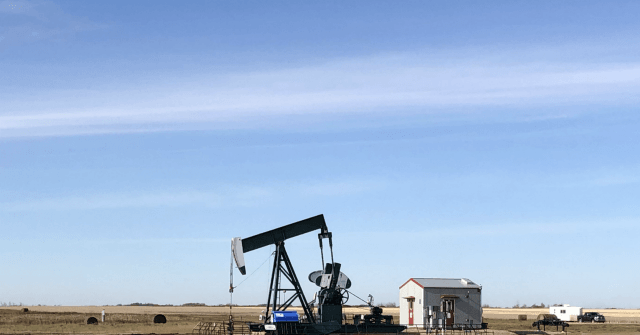According to oilfield services giant Baker Hughes, the number of operating oil rigs in the US dropped two to 574.
Oil prices rose to their highest level since late March, in part due to declining US oil inventories and expected growth in fuel demand before the US summer. The average price of a gallon of gasoline hit $4.60 on Thursday.
In the week ending May 13, crude oil inventories fell by 3.4 million barrels, contrary to forecasts for increased oil supply. Fuel inventories fell 4.8 million barrels, above the expected decline of 100,000 barrels. Last week, crude oil inventories fell by 2.4 million barrels, gasoline – by 5.1 million barrels. The reduction in supply came despite the release of five million barrels from the Strategic Petroleum Reserve.
The decrease appears to be due to a drop in the number of drilling rigs off Louisiana. The number of drilling rigs in Louisiana, including natural gas and oil, decreased by three. Texas and Oklahoma each added a rig, but it’s unclear whether it’s oil or natural gas in the data.
Canada added a total of 15 oil rigs per week.
The Biden administration has said it wants to increase local oil production, but until recently refused to auction new federal land leases. But even as the administration announced the move, it declared that it underestimated fossil fuel companies and viewed them as dangerous to the public interest.
The administration also significantly increased the tax on oil and gas income from leased lands, an unprecedented increase from approximately 12.5% to 18.75%. No president in 100 years has attempted such an increase.
Several Biden candidates have expressed hostility to the fossil fuel industry, discouraging investment in the industry and clarifying what the Democratic Party thinks about it. Last year, Biden appointed former Fed official Sarah Bloom Raskin as the Federal Reserve’s top banking supervisor, who advocates using rules to discourage banks from investing in fossil fuels. He also appointed Saule Omarova, a radical left-wing academic who called for banking regulations to stop investing in fossil fuels, to the Office of the Currency Supervisor. Both candidates were defeated when the moderate Democrats in the Senate retreated.
Perhaps most importantly, large organizations have invested in so-called sustainable funds that take environmental, social and governance factors into account when making investment decisions. These funds avoid investing in fossil fuels. According to the Deliote Financial Services Center, professionally managed assets with ESG entitlements worldwide will grow to $46 trillion by 2021, which will be worth about 40 percent of all assets managed. As a result, it has become very difficult to raise funds to expand fossil fuel production. Therefore, even oil prices over $100 per barrel do not attract capital to this sector.
In a recent episode of Bloomberg’s Odd Lots podcast, Goldman Sachs chief commodity strategist described investing in ESG as “a tedious tool that cuts off the flow of capital in a crucial industry.”
OPEC+ will meet next week and is expected to stick with its plan to increase July output by just 432,000 bpd, rejecting calls for faster increases from the US and Europe.
Source: Breitbart
